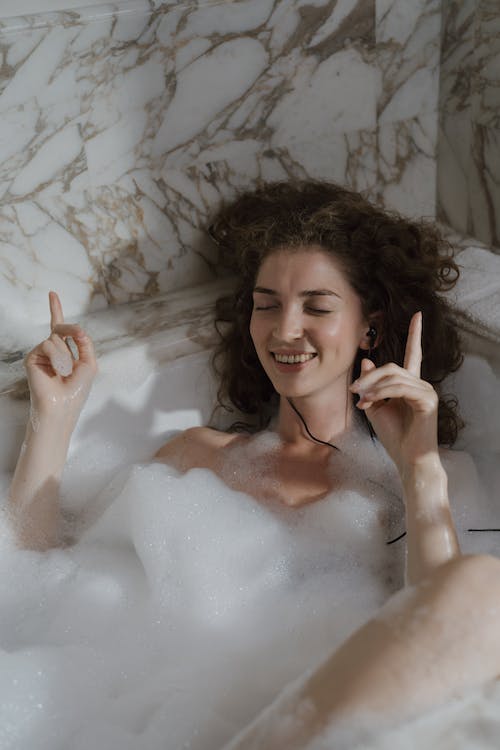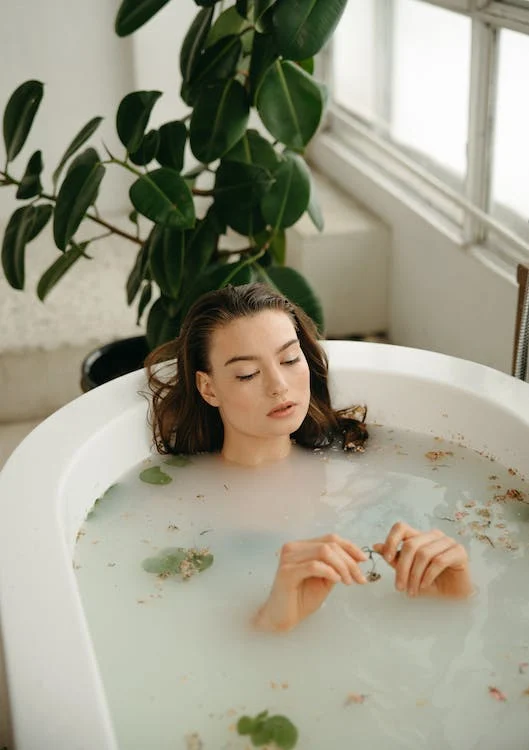The act of taking a shower or bath has a mystical quality to it. It’s possible to recreate the relaxing atmosphere of a day at the spa right in your own house with a warm bath, some scented soap, some calm music, and a nice book. Some people utilize their daily shower as a brief meditation session during which they can think over the events of the day and get some much-needed alone time. No matter if you like to shower or take a bath first thing in the morning or last thing at night, our daily hygiene practices serve a greater purpose than simply maintaining a pleasant odor. Let’s have a look at the benefits of different methods of bathing, ranging from cold showers that make you want to shiver to hot baths that fill the room with steam.
Are you torn between taking a shower with hot water or cold water because of the temperature? The discussion on whether a bath in hot water or cold water is more beneficial has been going on for quite some time now. Although each has a unique set of advantages to provide, the choice of which one to pursue is determined by a number of elements, including age, the time of year, routines, medical history, and other aspects. Continue reading to learn about the advantages that can be gained from taking baths in both hot and cold water.
Some Enjoy the Heat
Who does not enjoy a steamy shower or bath? It’s a pleasant method to unwind and release tension (no pun intended). However, it turns out that they can also improve our health.
1. While soaking, some calories will be burned.
You probably don’t consider soaking in the tub as a method for calorie burning. According to a recent study, however, one hour of soaking in a hot bath (104 degrees Fahrenheit, to be precise) burns the same number of calories as thirty minutes of walking. This is a really great perk of having a hot bath, however we won’t even begin to advocate it as a substitute for exercise.
2. Reduce your blood sugar levels.
When individuals took a hot bath after a meal, their peak blood sugar levels were around 10% lower than when they exercised. Despite the fact that the total blood sugar reaction to both activities was comparable, it is noteworthy that eating had a significant impact on blood sugar levels. However, you should continue to exercise; we’re not letting you off so simply.
3. Maintain your pores’ beauty.
When we take a steamy shower or a hot bath, our pores are opened and debris and toxins from the day are flushed away. When we take care of our skin, we not only look and feel better about ourselves, but we also feel cleaner.
4. Let your sinuses fill with moisture.
Similar to a humidifier or inhaling over boiling water, a hot and steamy shower can help relieve dry or clogged sinuses. Not to get too graphic, but when you feel congested, steam can help remove accumulated mucus.
5. sleep better at night
According to studies, taking a hot bath or shower at night may help us obtain a better night’s sleep. Subjects of all ages slept more peacefully after a warm bath before bed; nevertheless, time is crucial. The circadian cycle of our body normally slows down in the evening, signaling that it is time to sleep; thus, if we bathe just before bed, we risk boosting our body temperature and alertness.
Keeping Your Cool
Despite not being the most popular method of bathing, cold showers provide their own set of health benefits. Therefore, if you can remain calm while the temperature drops, it may be worthwhile to make the effort.
1. Make your hair and skin velvety.
Since hot showers cause pores to open, it makes sense that cold showers would close them. Which is preferable: heat or cold? It is all about your specific requirements. A cold shower will help you retain natural oils in your hair and keep your skin hydrated if you are prone to dry skin. However, if your pores are overdue for a cleanse, steam up!
2. Wash Away Your Sorrows
Cold water increases the creation of noradrenaline and beta-endorphins and sends electrical signals from our nerve endings to the brain when we are exposed to it. And according to one study, all of these chemical interactions may have antidepressant properties. Why not try a cold shower the next time you feel down in addition to consulting your doctor?
3. Increase your blood circulation.
Our bodies’ natural response to cold is an increase in heart rate, which speeds up blood circulation throughout the body. Even after exiting the shower, our general circulation is better since the heart is pounding more efficiently.
4. A Morning Without Coffee
You’ve probably seen this in movies: a person passes out and their friends rouse them up with a cold shower. Indeed, there is some validity to that! Many individuals find that taking a cold shower in the morning gives them the initial burst of energy they need to get started. Farewell, coffee, and hello, chilly shower!
5. Develop your willpower through exercise.
A consistent habit is the foundation of many successful people. When you push yourself to take a cold shower every day (something that many others would avoid), it enables you to exercise self-control and take charge of your schedule. What’s up next on the agenda? Perhaps a run in the morning or an hour of phone-free meditation. It depends on you!
To summarize
Hydrotherapy, which also goes by the name water therapy, has been used by people all over the world for millennia. It’s possible that different temperatures of water offer varied health benefits for different people.
The majority of research into the positive effects of hot and cold water on health has focused on water immersion therapy. The purpose of water immersion therapy is to promote healing by having a patient submerge all or part of their body in a large tank of water for a predetermined period of time.
Unless you have a good reason to breach this rule, such as jogging in extremely hot or humid weather, you should adhere to the guideline that states “hot water before, cool water after.” Be conscious of the possibilities of harm. If you suffer from a medical problem such as cardiovascular disease or high blood pressure, you should see your primary care physician before attempting either a warm soak or an ice bath.




